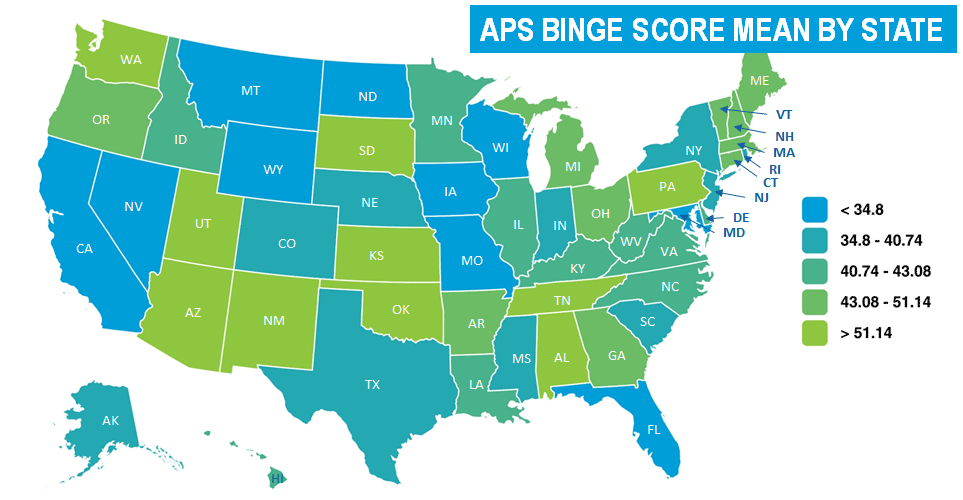In the US, adults under age forty living in states with more restrictive alcohol policies experience fewer aggression- and drink-driving-related harms from someone else’s drinking than those in states with weaker policies, a new NIAAA-supported study from the Alcohol Research Group, Public Health Institute, found. Results showed that for a 10-point increase in restrictiveness of an alcohol policy scale, including for instance alcohol availability, taxation and drink-driving laws, the odds of experiencing such secondhand harms was 16 percent lower.
Twenty-nine policies in the area of alcohol availability, underage drinking, drinking driving, social host laws, and pricing and taxation were combined using an expert panel by co-authors Ziming Xuan and Tim Naimi of Boston University to create two Alcohol Policy Scale (APS) scores, one aimed at reducing drinking driving and the other to reduce binge drinking. These scores were then used to assess their effect on alcohol-related harms from someone else’s drinking. Such secondhand harms included being hit, pushed or assaulted, having your property vandalized, or being a victim of a traffic accident caused by a driver who had been drinking.
“In trying to determine how these policies affect someone who comes in contact with a person who is drinking, we looked state by state, over a 15 year period, to see who was being harmed by another drinker and whether places and times with more restrictive alcohol policies could reduce that risk,” Tom Greenfield, Scientific Director of ARG, and the study’s lead author, said. “We found that if someone from North Dakota, for instance, a state where alcohol-related polices are less restrictive, moved to Minnesota, where they’re stronger, that person would experience approximately 16 percent fewer aggression-related or driving-related harms.”
Overall, people under the age of 40 experienced more secondhand drinking harms than those who were older, including family problems and financial issues. Increasing the restrictiveness of policies meant to deter impaired driving were slightly more effective than binge drinking-related policies, even though both types produced significant results.
“People under 40 are more likely to be the victims of assaults or risks of vehicular harms caused by others who were drinking than those who are older as they’re more apt to be in situations where people are drinking to excess, such as in bars, nightclubs, and other people’s parties. As we age, we tend to reduce how much we drink and less often place ourselves in risky situations so people over 40 tend to experience fewer harms from other drinkers,” Greenfield added.
“What this tells us is that states that enact more restrictive, stronger alcohol policies may be able to drop the level of harm that younger people are experiencing, especially in those jurisdictions that now have weaker, less effective laws.”
The study included data of over 26,000 US adults from four cycles of the National Alcohol Survey (2000-2015) and a 2015 National Alcohol’s Harms to Others Survey linked to prior-year state-policy measures. It was published today in Alcoholism: Clinical and Experimental Research.
***
Greenfield, T.K., Cook, W.K., Karriker-Jaffe, K.J., Patterson, D., Kerr, W.C., Xuan, Z., Naimi, T.S. (2019). The relationship between the US state alcohol policy environment and individuals’ experience of secondhand effects: alcohol harms due to others’ drinking. Alcoholism: Clinical & Experimental Research: https://onlinelibrary.wiley.com/doi/full/10.1111/acer.14054
Support for this paper was provided by the National Institute on Alcohol Abuse and Alcoholism under award numbers P50AA005595 (Kerr), R01AA022791 (Greenfield & Karriker-Jaffe), R01AA018377, Naimi) and R01AA023376 (Naimi and Xuan). The content is solely the responsibility of the authors and does not necessarily represent the official views of NIAAA or the National Institutes of Health.








